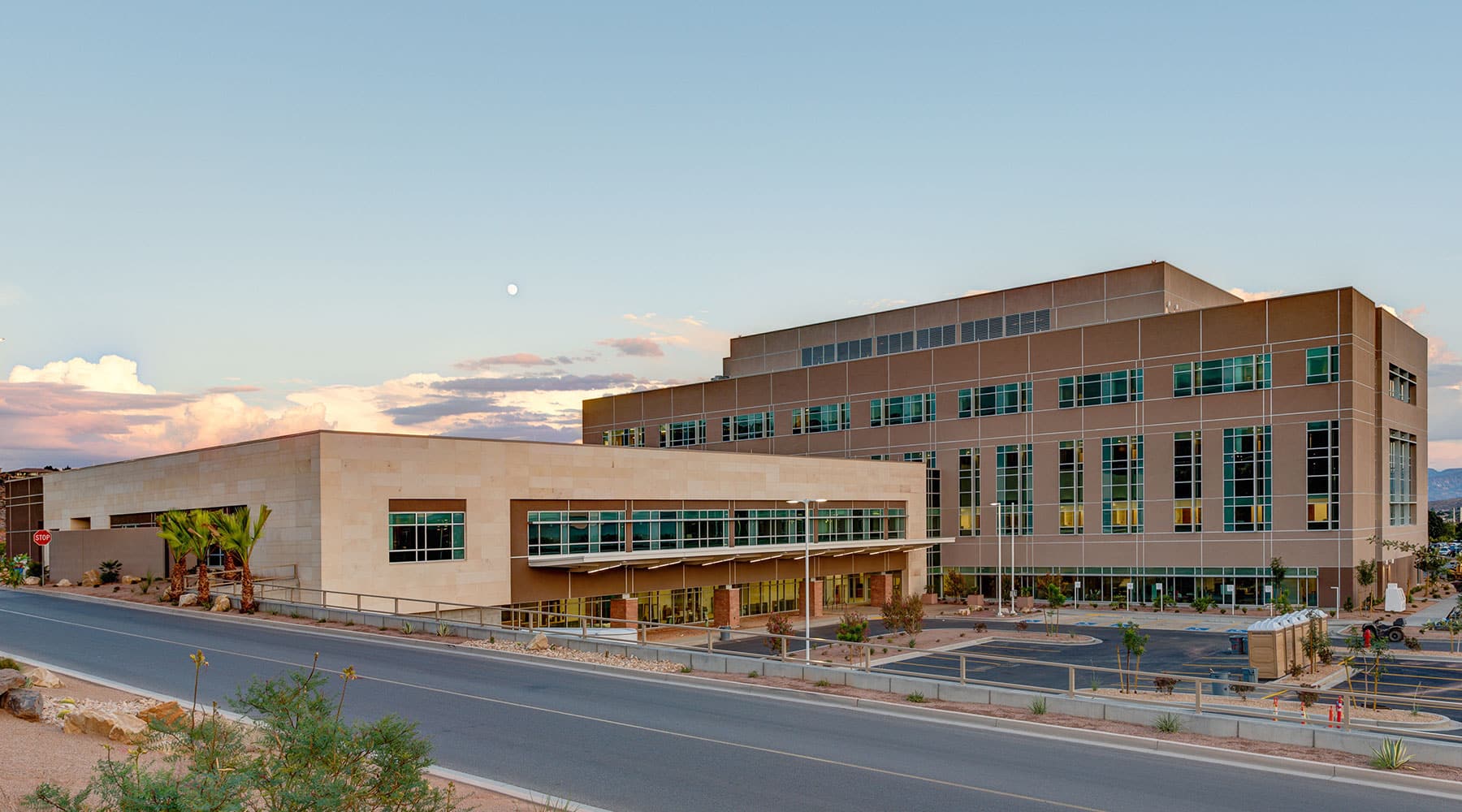This article was written and published by ENR-Engineering News Record. To view the original article, please click here: Intermountain Healthcare Dixie Regional Medical Center
Nestled into the Virgin River Gorge on a dramatic site among the Red Cliffs of St. George, Utah, Dixie Regional Medical Center (DRMC) consolidates two locations into a single, multi-service, easy-to-navigate campus. The new campus consists of two separate bed towers: one at the northwest corner for Women & Newborn services and another at the southeast corner expanding adult services from the existing tower. The Intermountain Cancer Center, which combines research and clinical care in a collaborative and translational environment, rests adjacent to the main campus.
Working closely with hospital staff, the design team evolved the master plan from one large project into three smaller ones, allowing the existing infrastructure and support services to more seamlessly handle increased capacity and expanded distribution.
The new Women & Newborn tower was designed to honor the architectural vernacular of the entire campus, yet maintains a distinct identity with its own entry and drop-off for patients. Maintaining a straight north-south spine while including on-stage/off-stage circulation was critical to this campus expansion. A series of corridor connections ensure that crossovers between patient and public circulation do not take place.
Intermountain Healthcare’s mission to help people live the healthiest lives possible is realized in their LiveWell program, designed to support the health of the communities they serve. Ensuring the program was enabled through design, the ability to move physically throughout the campus was improved. A walking path extends around the campus with trees and plants native to the high desert, and markers detail travel distances to desired locations. LiveWell signs that deliver ways to stay healthy hang on the walls of all campus buildings and open staircases encourage patients to take the stairs while also acting as monumental wayfinding elements. A new “bistro” was designed with outdoor space including fountains, gardens and protection from the summer sun, as well as a room-service approach to patient food service.
The landscape of the St. George area inspired the interior distinctions between each of five levels. Starting with pebbles of the riverbed on the lower level, then river and water, followed by trail, rock layers that make up the cliffs of the riverside, and finally waterfall at the top level. Palettes for each floor embody their given theme and informed selection of large-scale paintings and murals in patient hallways, accents within patient rooms and wood paneling and ceilings in waiting areas to create a sense of familiarity on various floors.
Project category: New construction and remodel/renovation
Chief administrator: Mitchell Cloward, hospital administrator
Firm: HDR, www.hdrinc.com
Design team: HDR (architect); Van Boerum & Frank Associates (mechanical engineer); Spectrum Engineers (electrical engineer); Great Basin Engineering (civil engineer); Reaveley Engineers (structural engineer); Riverbend Landscape (landscape engineer)
Total building area (sq. ft.): 425,239
Construction cost/sq. ft.: $414
Total construction cost (excluding land): $176 million
Completed: June 2019
